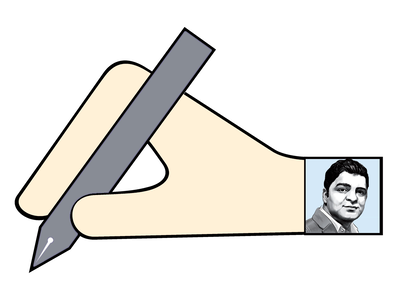
The first tenet of true patriotism
by DushyantAnominous and open attack on the very institution of High Courts was made by the Government of India yesterday, during a hearing before the Supreme Court. Earlier this week, the apex court passed an order, holding that it is suo moto taking up issues pertaining to the welfare of migrant workers who have been thrown into peril by the four-hourto- indefinite-lockdown. (More on the merits of the hearing later).
In the course of the hearing, Tushar Mehta, the Solicitor General of India reportedly said that some High Courts are “running a parallel state”. Given the nature of the hearing and the context of his monologue, this statement was presumably with reference to the orders passed by various High Courts who have passed wideranging orders providing relief to migrant workers – from ordering that they be provided water, toilets, even sanitary napkins, to ensuring that ration shops provide rations on time, to ensuring transport for them and demanding accountability from the state concerned and sometimes even the Central government.
The High Courts, of course, were simply discharging their constitutional mandate. This drew attention to the institutions who were failing to do this. But it’s a fact that the Solicitor General felt comfortable attacking multiple High Courts, whether because he was instructed to do so or whether because he simply felt like it is a dangerous development that needs to be taken very seriously. We need to ask ourselves some questions. What will be the impact on the minds of the judges who have been attacked for doing their job, attacked by the Solicitor General, attacked in front of a three-judge bench of the apex court which did nothing to discourage, leave alone denounce, this statement. If citizens, bar associations and other appropriate institutions do not at the very least condemn this statement, what will the executive feel emboldened to do next? How will balance of powers be affected?
In a land with a million lit candles, each candle needs to be extinguished for deep, frightening darkness to win. But you only have to light one candle in the middle of this darkness. No matter how fierce the darkness and how strong the storm, a few candles will always remain lit and a few flames will always be visible in the vast expanse that is the Indian Judiciary.
After tremendous outrage in the general public, the Supreme Court of India, suo moto, initiated proceedings over sixty days after the lockdown was enforced and after multiple petitions in which the court categorically said that there is nothing it can do for migrant workers.
In one of these hearings, the Solicitor General told a white lie – that there are no workers walking on the road. Today the court appears to have realised that he was wrong and yet he did not face any consequences for this blatant lie. It is my belief that if people get away with making blatantly false submissions in court about matters which are public knowledge, it lowers the prestige of the court. Two rough submissions appear to have been made by the government – first, that it is state governments which are responsible for everything. When the apex court asked for specifics, the Central Government didn’t seem to have ready answers.
The second was a long grievance about the media; about critics of the government and the court; how criticism equals negativity, unpatriotic and discourteous to the nation no less. Many people on social media described the reports about this grievance as a ‘meltdown’ of the Solicitor General, but I don’t think this deserves to be dismissed as frivolous. In the hearing, every single person who wants to speak for the rights of migrant workers was assailed. At one point he even said the workers are walking even though they don’t need to, simply because some people are instigating them.
It is painful to see a senior officer of the court believe that hundreds of thousands of people are braving hunger, thirst and often death only because they have been fooled or ‘instigated’. Those reporting on the multiple deaths and inhumane conditions of workers were attacked as ‘spreading negativity’.
As if the only demands that patriotism makes on us are silence and not doing our duty. The Solicitor General said in court – the people criticising must be asked, what have they done. A common response to this is: ‘we have paid taxes’. Does this mean people who fall outside the tax net don’t have the right to ask questions? No. It isn’t merely the case that it is our ‘right’ to ask which it damn well is. To the question ‘what have you done’, the answer ‘I raised my voice when few dared to, I demanded accountability for the vulnerable when few dared to’ is more than good enough. Because this – asking questions for and raising voice for the marginalised – is the first requirement of true patriotism.